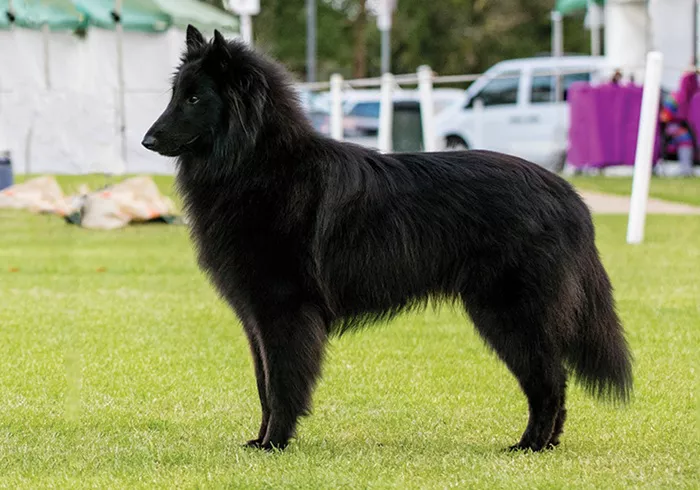Belgian Shepherds, also known as Belgian Sheepdogs, are a group of four distinct varieties: Groenendael, Tervuren, Malinois, and Laekenois. Originating in Belgium in the late 19th century, these dogs were initially bred for herding and guarding livestock. Today, they are celebrated for their versatility, excelling in roles such as police work, search-and-rescue, and even as family companions. A key trait that sets them apart is their exceptional intelligence, which has made them a favorite among working dog enthusiasts.
Defining Canine Intelligence
Canine intelligence is measured through three primary dimensions:
Instinctive Intelligence: The ability to perform tasks they were bred for (e.g., herding, guarding).
Adaptive Intelligence: Problem-solving skills and learning from experiences.
Working/Obedience Intelligence: The capacity to follow commands and learn new tasks quickly.
Belgian Shepherds rank highly in all three categories, particularly in obedience and adaptability. According to Stanley Coren’s The Intelligence of Dogs, they hold the 15th position among 138 breeds, placing them in the “excellent working dogs” tier.
Key Indicators of Belgian Shepherds’ Intelligence
Rapid Learning and Trainability
Belgian Shepherds are renowned for their ability to learn commands in as few as 5–15 repetitions, achieving a 95% success rate in obeying known cues. Their eagerness to please and sharp focus make them ideal for complex tasks. For example, Malinois, a Belgian Shepherd variety, is widely used in military and police roles due to their precision in detecting explosives and apprehending suspects.
Problem-Solving Skills
These dogs thrive in environments that challenge their minds. A study noted that Belgian Shepherds can independently assess situations, such as navigating obstacles or finding hidden objects, without constant human guidance. This trait stems from their herding heritage, where quick decision-making was essential to manage livestock.
Emotional and Social Awareness
Belgian Shepherds exhibit high emotional intelligence. They form strong bonds with their handlers and can read subtle cues like tone of voice or body language. This sensitivity allows them to adapt their behavior—for instance, remaining calm around children while staying alert to potential threats.
Factors Influencing Their Intelligence
Genetic Predisposition
Selective breeding has emphasized traits like alertness, loyalty, and cognitive agility. The Groenendael and Tervuren varieties, for example, were historically bred for both herding and guarding, requiring a balance of independence and obedience.
Early Socialization and Training
Puppies exposed to diverse environments, people, and animals between 3–14 weeks develop better problem-solving skills and confidence. Harsh training methods, however, can trigger anxiety, undermining their natural abilities. Positive reinforcement, such as treats or praise, yields the best results.
Mental and Physical Stimulation
Without adequate exercise or mental challenges, Belgian Shepherds may resort to destructive behaviors like excessive barking or chewing. Activities like agility courses, scent work, or advanced obedience training keep their minds engaged.
Comparing Belgian Shepherds to Other Breeds
| Breed | Intelligence Rank | Key Strengths |
|---|---|---|
| Border Collie | 1st | Unmatched herding instincts, rapid learning |
| German Shepherd | 3rd | Versatility in police/military roles |
| Belgian Shepherd | 15th | Balanced working intelligence, adaptability |
While Border Collies outperform Belgian Shepherds in raw problem-solving, the latter excel in tasks requiring sustained focus and physical endurance, such as patrolling or search missions.
Real-World Applications of Their Intelligence
Law Enforcement and Military Roles
The Malinois is a top choice for K-9 units due to its agility and ability to work under pressure. Notably, a Belgian Shepherd named Cairo participated in the 2011 mission that located Osama bin Laden.
Search-and-Rescue Operations
Their keen sense of smell and stamina make them effective in locating missing persons. For instance, Belgian Shepherds were deployed during the 9/11 aftermath to search for survivors.
Service and Therapy Work
With proper training, these dogs assist individuals with disabilities, providing emotional support or guiding the visually impaired. Their calm demeanor in public settings enhances their suitability.
Challenges in Raising a Smart Belgian Shepherd
High Energy Demands
Belgian Shepherds require 1–2 hours of daily exercise, including running, fetch, or advanced training. Without this, they may develop anxiety or hyperactivity.
Need for Mental Engagement
Puzzle toys, obedience drills, or even hide-and-seek games are essential to prevent boredom. One owner reported that teaching their Tervuren to recognize over 50 toy names significantly reduced destructive habits.
Sensitivity to Owner’s Emotions
Their emotional awareness means they can pick up on stress or frustration, potentially affecting their performance. Consistent, calm leadership is crucial.
Enhancing Your Belgian Shepherd’s Intelligence
Structured Training Programs
Basic Commands: Start with “sit,” “stay,” and “come” using reward-based methods.
Advanced Skills: Introduce agility training or scent detection once basics are mastered.
Socialization Techniques
- Expose puppies to different environments (e.g., parks, urban areas).
- Arrange playdates with other dogs to improve social adaptability.
Diet and Health Monitoring
A balanced diet rich in omega-3 fatty acids supports cognitive function. Regular vet check-ups help address issues like epilepsy, which is prevalent in the breed.
Conclusion
Belgian Shepherds are not just intelligent—they are adaptably intelligent. Their ability to switch between roles, from a disciplined working dog to a gentle family companion, underscores their cognitive flexibility. While their sharp minds demand dedicated training and stimulation, the rewards of owning such a capable breed are immeasurable. For those willing to invest time and effort, Belgian Shepherds prove that intelligence, when paired with loyalty, creates an extraordinary canine partner.
Related Topics:
WHY DOES MY AUSTRALIAN SHEPHERD BARK SO MUCH?
ARE AUSSIEDOODLES HYPOALLERGENIC DOGS?
CAN YOU GIVE A GERMAN SHEPHERD IBUPROFEN?


